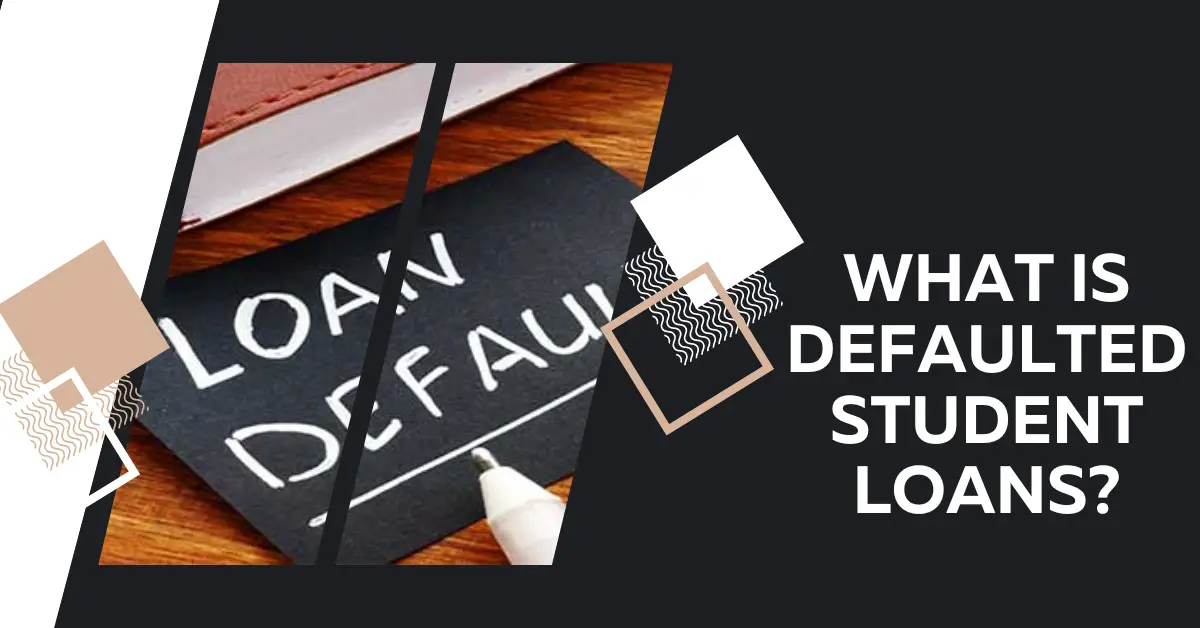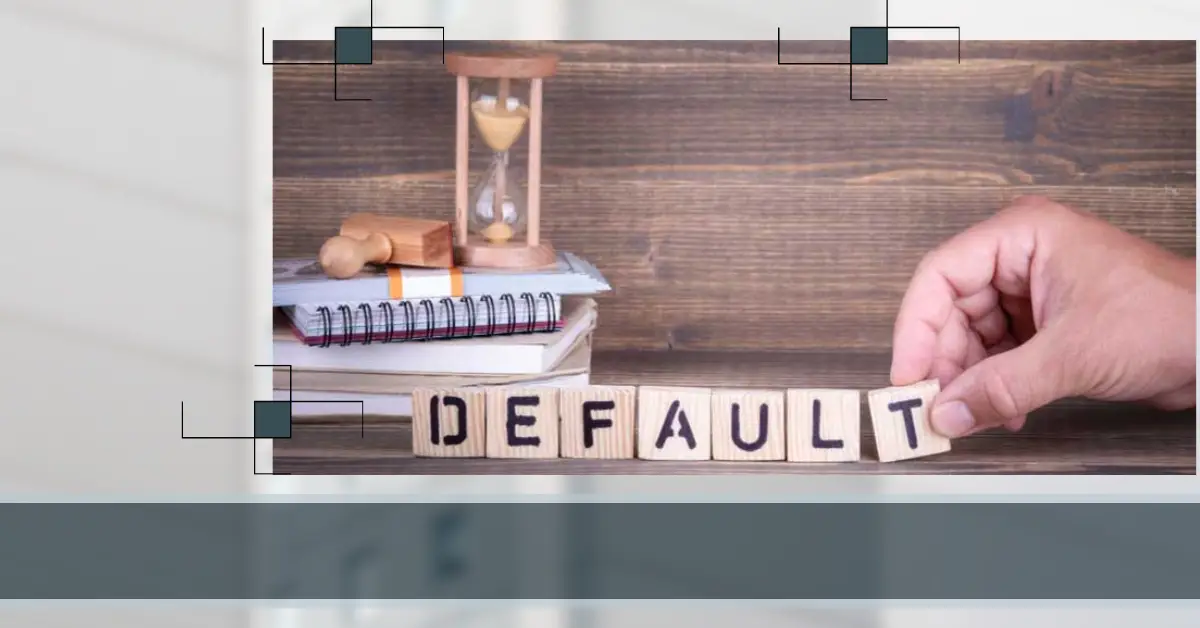When borrowers don’t repay their loans as agreed, they default. After months of not paying back a loan, it is considered in default. Whether you have a federal or private student loan affects how long it takes to go into default.
When a loan is in default, many bad things can happen, from having to pay the entire balance right away to no longer being able to get a deferment or forbearance.
The good news is that getting out of default is possible. You can get back on track by rehabilitating your loan, paying off the entire balance, or refinancing it.
What is Defaulted Student Loans?
When you default on your student loan, you haven’t paid it back for a few months. If you don’t pay back your student loan by the due date, it is said to be delinquent.
After that, your student loan will be late until you pay the amount you owe, get a deferment or forbearance, or change your repayment plan.
How Do I Know That My Student Loans Are in Default?
Your loan company or servicer will likely inform you if your student loans are late or past due. Depending on how you usually pay your student loan bill, you may get a letter in the mail, a phone call from your servicer, or an email with information about your late payment.
If you let your student loan payments get behind for a few months, you should expect them to go into default soon. Once your student loans go into default, they should show up on your credit report, which you can get for free from all three credit bureaus through AnnualCreditReport.com.
You can also go to the Federal Student Aid website to check on the status of your federal student loans, including any information about late, delinquent, or default amounts.
Check out some of the most recent trending articles:
- What is Edfinancial Services, and What Does It Offer?
- Samsung One UI 5.0 Update: How Do I Upgrade My Samsung Phone To The Latest Software?
How Does Default Affect Me?
Many things can happen if you don’t pay your student loans, and it can take years to fix the damage to your credit score. Here are some reasons why you should never miss a payment on your student loan:
- If you don’t repay your federal student loans, the amount you still owe and any interest can immediately become due. This is called “acceleration.”
- If you don’t pay back your federal student loans, you can’t get a deferment or forbearance, and you can’t change your repayment plan.
- Students who don’t repay their loans can’t get federal student aid.
- Your loan holder can take you to the court whether you have a federal or private loan.
- Your pay could be taken from you.
- Your missed payment will be reported to the credit bureaus, which can significantly hurt your credit score.
- Your debts will add late fees and interest, which will only worsen.
- You will probably have to pay the court, collection, attorney fees, and other costs related to getting the money.
- Your school could keep your transcript of records until you pay off your student loans.
The most important thing to remember is that if you don’t pay your bills, it can have severe and expensive financial consequences that could affect your life and finances for years to come.
If you think you might fall into default or are having trouble paying your bills, contact your loan servicer as soon as possible to determine your options and make plans to avoid insolvency.
What Happens if I Default on My Student Loans?
All of the above things could happen if you don’t pay back your student loans and don’t do anything to fix your situation. Unfortunately, this financial mistake could make it harder for you to get anything that requires a soft or hard credit check.
If you have bad credit, for example, because you didn’t pay back your student loans, you might not be able to get a credit card, borrow money to buy a car, or get a mortgage to buy a house, no matter how much money you make.
If you can get consumer credit, you’ll probably have to pay a higher interest rate and more fees than someone with a good credit score.
If you don’t repay your student loans, you might also find it hard to sign up for utilities or get reasonable rates on homeowners insurance. Getting a cell phone plan or renting an apartment might be challenging without a co-signer.
How Do I Get My Student Loans Out of Default?
There are ways to get your student loans back in good standing if you have already stopped paying them.
Federal Student Loans
Since March 2020, the government has stopped trying to get money from people who haven’t paid back their student loans or grant overpayments. This temporary help will end in the summer of this year.
But the Education Department has said that all borrowers with federal loans that are in default or who have missed payments will be able to start paying again in January.
Aside from this short-term fix, there are three main ways to get out of default on your federal student loans: paying off the entire loan balance, rehabilitating your loan, or consolidating your loans.
Most people can’t afford to pay off their loans simultaneously, so their only options are rehabilitation and consolidation.
When you want to fix a federal loan, call your loan servicer first. When you fix up a federal Direct Loan or FFEL loan, you have to do the following:
- Pay nine monthly payments your loan holder thinks are reasonable within 20 days of the due date and agree in writing to these terms.
- Pay all nine of the agreed-upon payments over 10 months.
Under loan rehabilitation, your monthly payment usually equals 15% of the money you have left over each month.
According to the U.S. Department of Education, discretionary income is “the amount of your adjusted gross income (from your most recent federal income tax return) that exceeds 150 percent of the poverty guideline amount for your state and family size.”
Because of how loan rehabilitation payments are calculated, your loan amount could be as low as $5 per month during rehabilitation.
You can combine your current federal student loans into a new loan with federal loan consolidation. For this plan for loans that have been missed payments on, you must do one of the following:
- Pay back your new Direct Consolidation Loan through a plan based on your income.
- Before the consolidation, you must make three voluntary, on-time, complete monthly payments on the loan that is behind.
Private Student Loans
Regarding private student loans, the rules are not the same. If you have personal student loans that are past due, you may be able to work out a deal to pay off your debt. You could also try to get back on track with your loan servicer.
You can do this by contacting them and explaining your situation. Many people who can’t pay their private student loan debt turn to a student loan lawyer for help.
If you believe this is interesting, please discuss it with others you know. Visit newswatchlist.com for the most recent news and updates regarding famous people.




Leave a Reply